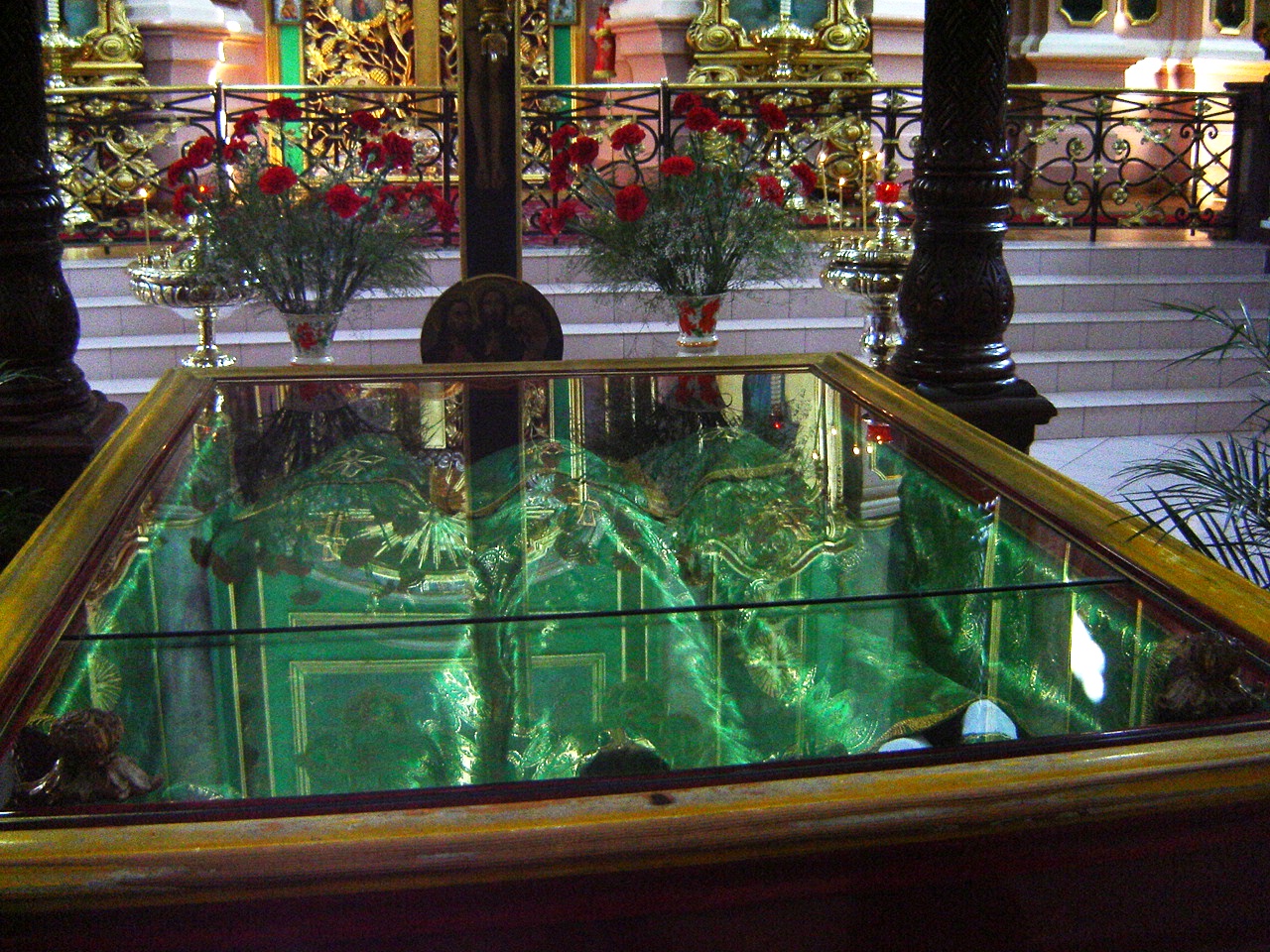Do you believe that when you go to heaven there will be no more sin, sorrow or suffering? A lot of people do. Will you be free? If you still have free-will in heaven, h0w will you manage to never sin again? Pamalogy has an answer for you. Ready?
In my last couple of blogcasts, I’ve described the Pamalogists’s theodicy. A theodicy is a way someone explains how God can exist despite the appearance of evil in the world. It is a way of responding to the problem of evil.
I know my readers and listeners are exceptional and probably already know what a theodicy is. You probably also already know that the most popular theodicy is the argument for free-will. The idea is that God is omniscient, all powerful, and all good, but tolerates evil because in order to create the best possible Universe, he needs to allow creatures to be free. Freedom is so important, that bad choices need to be tolerated by God.
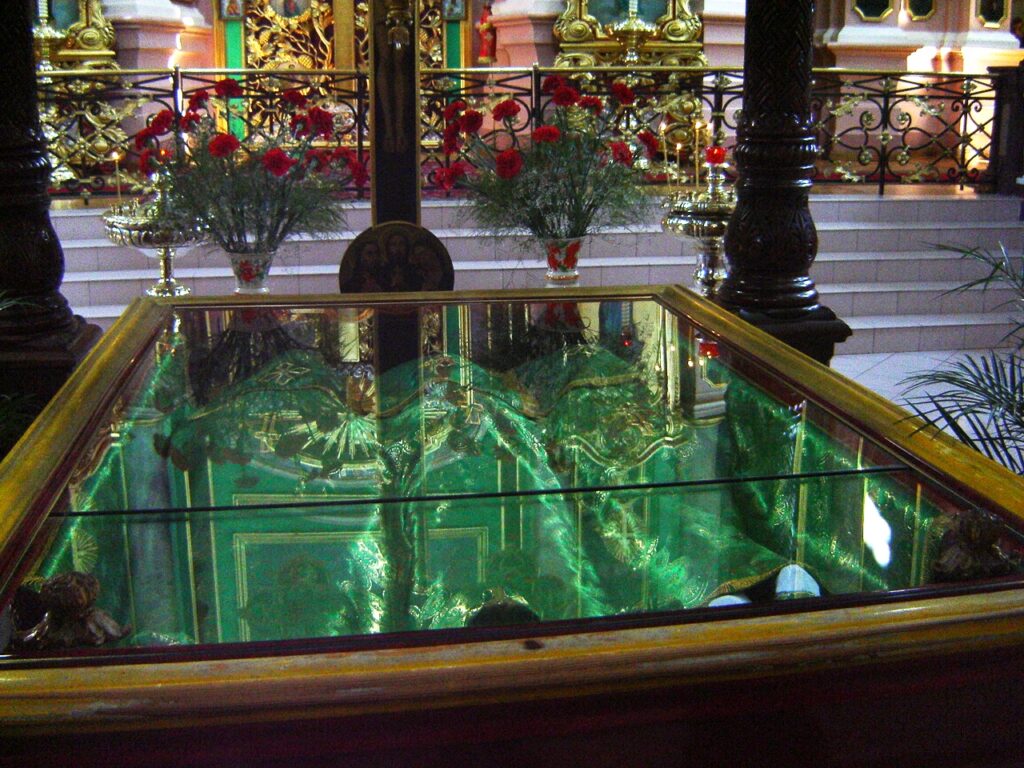
Well, if this is true about people living on planet Earth, then wouldn’t the same principle also apply in heaven? Heaven is part of creation. Isn’t it? If free-will is such a high value that God finds it necessary in order to create the best possible Universe, then we can expect free-will to continue in heaven, even as it is on Earth, just as we can expect God’s will to be done on Earth, even as it is in heaven. God’s will is done in heaven, according to the Lord’s prayer, but does that mean there is still free-will in heaven?
I put this question to a group of Christians I found on Facebook and as you might expect, there were a variety of answers. One questioned whether the body was raised physically or spiritually. Another asserted that “those in heaven don’t want that.” They don’t want to sin. So they freely choose not to. Another, pointing to “New Jerusalem and a New Earth” suggested that in that state of affairs there would be no “competing resources.” I think he means temptation. There won’t be any more temptation. The Lord asked us to pray not to be led into temptation. Maybe that has something to do with it. But if so, why is there temptation on an optimally made Earth?
If the answer is free-will, then free-will might exist in heaven but without the temptation that leads into evil. But still … if that’s the case, then why did the optimal creation God made include temptation? It stands to reason that God would have created the Earth the same way the heavens were made so that they would both be optimal. I’ll explain how the Pamalogist answers this question by way of comparing it to some popular theodicies, especially that of John Hick.
We’ll start with an overview. The theodicy argument based on free-will has a number of dimensions. Firstly, it explains why there is some evil – moral evil specifically. Moral evil isn’t God’s fault. It’s ours. Secondly, sin leads to punishment in accord with the perfect justice of God. The amount of bad stuff that seems to happen when punishment is involved can seem to be far greater than the moral evil that might have caused it, but that’s the explanation for it all nevertheless. For Saint Augustine, justice was the cause of the whole fall of all mankind. It all stemmed from one original sin. All of the calamity in the whole Universe is a just punishment for Adam’s sin. Apparently, we drastically underestimate how much God hates sin.
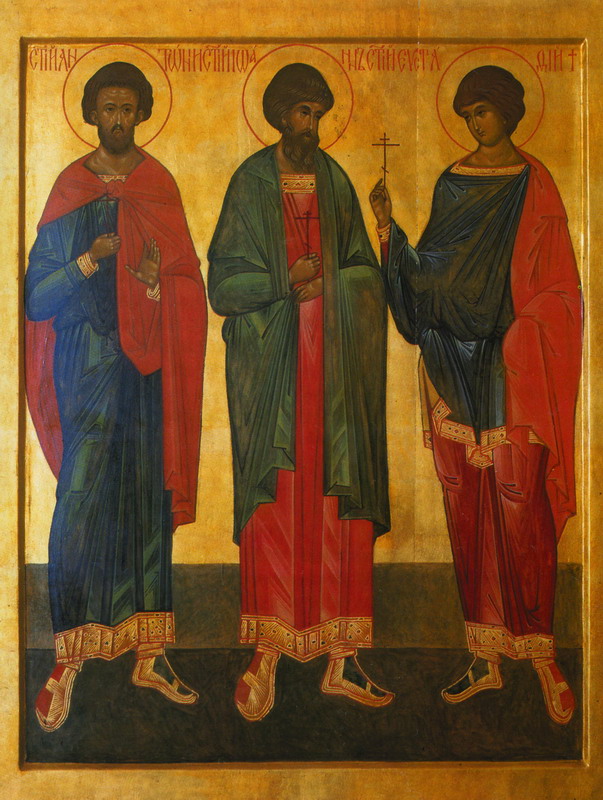
For those of you who are aware that neuroscience doesn’t seem to support the idea of free-will, I’ll get to that in my next blogcast. For the moment, we’re looking at traditional Western views.
I might first point out that the Adam and Eve story has a pretty big hole in it. If the whole Universe turned sour with some just punishment because of what Adam and Eve did, what was the crafty serpent doing in the garden committing the sin of lying and deceiving before Adam and Eve ever disobeyed God? Adam blames Eve. Eve blames the serpent, but Augustine still blames Adam instead of the serpent.
Seen in that light, Augustine’s original sin doctrine doesn’t make much sense, and without that, the free-will argument doesn’t stand up as a just grounds for the fall of the whole Universe. The problem of natural evils, like famine, disease and natural disasters, not to mention man-made injuries, violence and war affecting the innocent aren’t well explained. They don’t look like punishment. They look random. They make us wonder how God can even exist at all.
The explanation of Irenaeus is a little better than Augustine’s, I think. The serpent served a positive purpose by tempting Adam and Eve. The idea was that it was a test to help them build their character. Even if the story in Genesis is an allegory, rather than literal history, the idea that challenging situations can help us grow, is a lot easier to accept and relate to than some mysterious application of justice that destroys an entire Universe on account of a single sin.
In Irenaeus, the Universe isn’t fallen. It’s just full of challenges for those with free-will. God isn’t immeasurably angry in the fall of Adam; he is patient and longsuffering. Irenaeus uses the example of Jonah, who was not destroyed for his disobedience, but saved by the fish. He was tossed out of the boat because his reluctance to do the will of God was intolerable, but his removal was similar to the way Adam was tossed out of the garden. Like Adam, Jonah gets tossed out only to wind up in a situation that God delivers him from.
In Irenaeus, this principle of deliverance is exemplified above all in the Word of God made flesh. He puts it this way:
“Long-suffering therefore was God, when man became a defaulter, as foreseeing that victory which should be granted to him through the Word. For, when strength was made perfect in weakness, it showed the kindness and transcendent power of God. For as He patiently suffered Jonah to be swallowed by the whale, not that he should be swallowed up and perish altogether, but that, having been cast out again, he might be the more subject to God, and might glorify Him the more who had conferred upon him such an unhoped-for deliverance”
– Irenaeus, Against Heresies Book III, Ch. XX § 1
Against the gnostics and fatalism of some Greek philosophy, Ireneaus defends free will. As with Augustine, free-will is related to why there is evil. But in Irenaeus, God’s tolerance of evil exists for the sake of growth in character. Adam is in a learning environment rather than a Universe characterized by retribution and some drastic penalty.
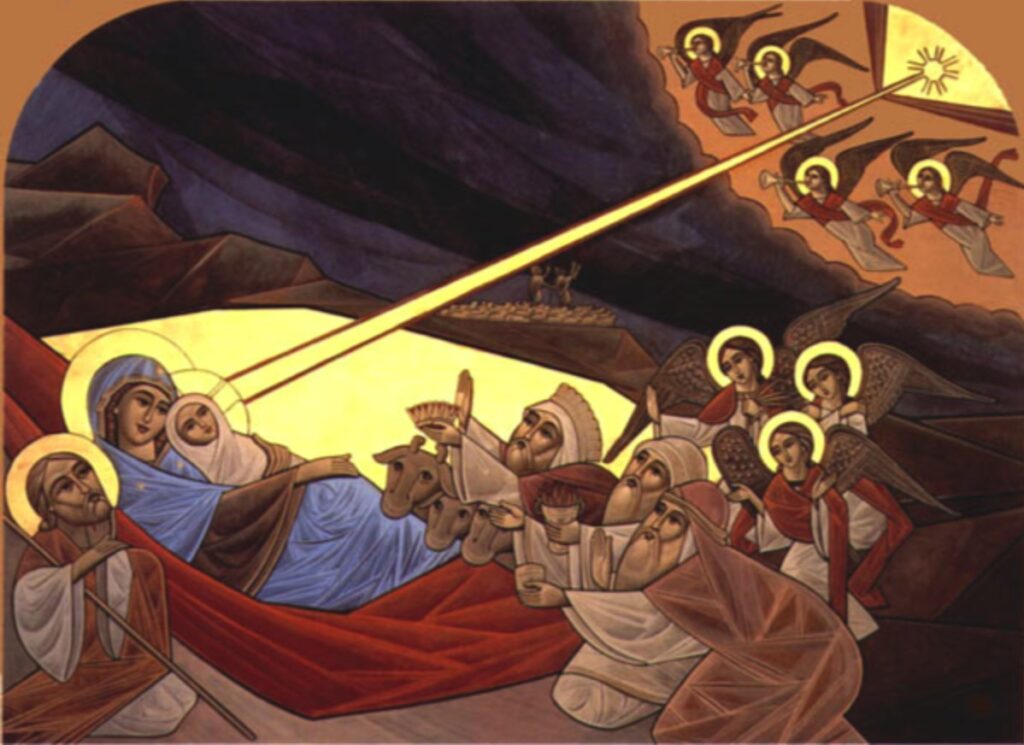
Also, while we’re on it, notice that in Irenaeus, the so-called “sign of Jonah,” a reference by Jesus, isn’t about the number of days and nights that Jonah was in the belly of the whale, but about the tolerance of God that brings on an improvement of character for those free to repent. It’s an aside, but the Bible scholar in me wants to point this out. The significance of the sign of Jonah is tolerance, repentance and deliverance. Jesus is with Jonah in the belly of the whale and he is with us in the fall of mankind, the decent into hell, and in salvation as proclaimed in the waters of the Jordan. It’s not about how many nights and days.
Anyhoo… End of rabbit-hole. Bottom line, Irenaeus accepts free will as a reality, but for him it isn’t the reason for evil. Character-building is.
The Irenaean theodicy was taken up more recently by the late philosopher of religion, John Hick, who added Universalism to the picture. Universalism is the idea that belief in Jesus is optional for salvation. Hick was an Anglican. In all but Evangelical circles, there is a strong current among Christian theologians toward Universalism. The Catholic theologian, Karl Rahner, in maintaining that Jesus was the only name by which we may be saved, used to refer to Universalism as “anonymous Christianity.” If there is no other name by which we can be saved, and Jesus is divine, then to say that only Jesus can save is simply to say that only God can save. To call on or believe in Jesus is to call on and believe in God. Only God can save. Jesus says that blasphemy of the Son of Man is not a sin unto death. Only blasphemy of the works of God themselves, only blasphemy of the Holy Spirit is unforgiveable. Blasphemy of the works of the Spirit means rejection of all that is good. That’s what Universalism is. It also goes by the name of religious pluralism.
Universalism certainly makes Christianity more palatable. Any claimant to divinity will seem unjust if they judge souls on the basis of guessing wrong, especially if sensible arguments exist for disagreement. The purpose of a theodicy is not just to explain the existence of God despite evil, but to convince others of the strength of their argument. I’m sure that’s why Hick was known as a Universalist in his ongoing debate with atheists. A more palatable God is easier to sell. Hick seems to have liked John Milton’s definition of a theodicy as “an attempt to justify the ways of God to men.” Orthodox doctrine may be important to maintain for believers, but to a non-believer, the tolerance of heresy might seem consistent with divine patience if God were real. Hick’s Universalism would serve that purpose. If a revealed God was intolerant of wrong-thinking, that God might seem more human than divine, and certainly less justifiable to men.
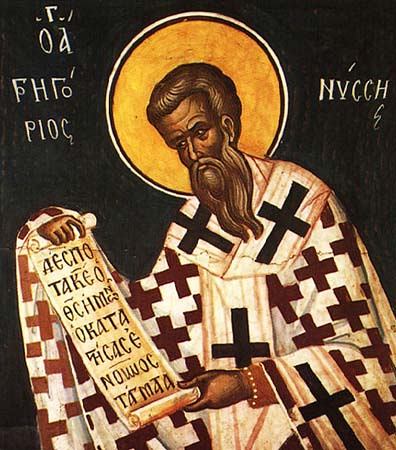
Universalism is a subject for another day. We’ll explore it some more as we compare Pamalogy with non-Christian traditions in future episodes. Here, I just want to make sure Hick’s Universalism isn’t confused with apocatastasis – which is the Universal salvation of all creation, including the demons – as we would find in Gregory of Nyssa.
Apocatastasis is the Anglicized pronunciation of a Greek αποκαταστασεως παντων in Acts 3:21 (or in Matthew 17 – αποκαταστησει παντα). It means “total restoration.” Jesus speaks of the “restoration of all things,” or apocatastasis. In the Gospel of John Jesus uses the future tense, referring to Elijah and John the Baptist. For Jesus, Elijah has already come, but will still also come in the future and restore all things. If the Gospel of John is accurate and true, then taken together with Acts 3:21, God’s plan for the Universe might be one of complete restoration as Gregory of Nyssa taught. I was telling you about Gregory of Nyssa an episode or two ago. Remember?
Atheists obviously don’t buy any of this even when the pitch is softened up with Universalism. A good end to the whole Universe is out of the picture along with both God and free-will. They present both logical arguments from evil and evidentialist ones. Hick addressed a number of atheist proofs against the God theory but focused especially on an argument from William Rowe. It looked like this and I’ll quote:
- There exist instances of intense suffering which an omnipotent, omniscient being could have prevented without thereby losing some greater good or permitting some evil equally bad or worse.
- An omniscient, wholly good being would prevent the occurrence of any intense suffering it could, unless it could not do so without thereby losing some greater good or permitting some evil equally bad or worse.
- (Therefore) There does not exist an omnipotent, omniscient, wholly good being. (Rowe, W. “The Problem of Evil and Some Varieties of Atheism” American Philosophical Quarterly Vol. 16, No. 4, 1979: pp. 335-341)
The two premises 1 & 2, followed by the conclusion, 3, make a succinct formal argument that is valid if the two premises are true. So, theists will refute it either by showing that there are not actually any instances of intense suffering that an omniscient, omnipotent being could have prevented without some other resultant loss to total awesomeness that’s just as bad or worse. Or, they’ll refute the second premise, saying that an omniscient, wholly good being might not prevent the occurrence of any intense suffering it could, without some other resultant loss to total awesomeness that’s just as bad or worse. This would require an appeal to divine inscrutability. We can’t know or understand an incomprehensible God. We can’t know God’s ways.
Most theists reject the first premise. They acknowledge that there is evil. But if suffering is intense, then they say it exists for some necessary reason, such as the satisfaction of divine justice, or for growth of character. The problem with this defense is that we have no access to the divine thoughts on justice that would bring about what we see. In many, and even most cases, the punishments don’t seem to be on the perpetrators of the crimes directly. They also don’t seem to be proportionate. The theist winds up appealing to a sort of divine wisdom that the rest of us have no comprehension of. Who are we to question God? God is sovereign. God is both the original author and the final arbiter of what is right and wrong and what is just or unjust.
This line of thought may flow over into the second premise. God is inscrutable.
It’s not a very convincing argument. The atheists, in upholding it, seem to win. The second premise is that “an omniscient, wholly good being would prevent the occurrence of any intense suffering it could, unless it couldn’t do so without losing some greater good” or other net loss to total awesomeness. Most theists would agree with this premise but they’re divided as to how they see God’s power and knowledge, or his ability to know or control what might be known or done in the future when free-will is involved. I’ll get to that in a moment.
For the most part, theists will refute the first premise. They won’t acknowledge the existence of any instances of intense suffering that God could have prevented without winding up with an even worse reality. The atheist will then point out ways in which the world could have a total level of awesomeness that could be higher than what it is. If in arguing with a theist, an atheist somehow admits that punishment may be just even if it is disproportionate, they can still win the argument by disproving that we have free-will, or in the case of the argument of Irenaeus about character, by showing that in many cases there doesn’t seem to be any connection between personal growth and various types of calamities. How, for instance, is it of some character benefit to anyone if a child is paralyzed when suffering a severe brain injury if it is flung into the street from mother’s car because she has a heart attack and dies while driving? How is there a character benefit? Will the child grow in character more growing up in a foster home than with her mother? Can character benefit also justify the holocaust? The examples may be endless.
Well, there may be answers, as insensitive as it may seem to offer them. The atheist’s case against evil is no slam dunk. Generally, when very bad things happen to people who don’t seem to have deserved it and no one can seem to be found to benefit by it, the value of compassion and prayer and coming to the aid of other human beings in their need would surely be a part of the total net affect, at the very least. Maybe these dimensions of the situation are being undervalued by atheists. Does prayer and compassion and longing for justice, or wishing things were right and better, have a value in the cosmos somehow? How can we agree to measure that? Understanding the depths of God’s thinking on this presents the same problem as understanding divine justice. God is inscrutable. But what rules the day on opinion, is that a person has to be convinced. If they aren’t inclined to give God the benefit of the doubt, then the argument against God will win the day.
To me, the character growth argument of Ireneus and Hick is more palatable than the Augustinian one because at least it offers some explanation for the divine purpose. While the atheist may respond, asking how the holocaust or the suffering of children, slavery or the slaughtering of cattle on a daily basis serves our character, at least their argument gives us a comprehensible basis for justification of the evil.
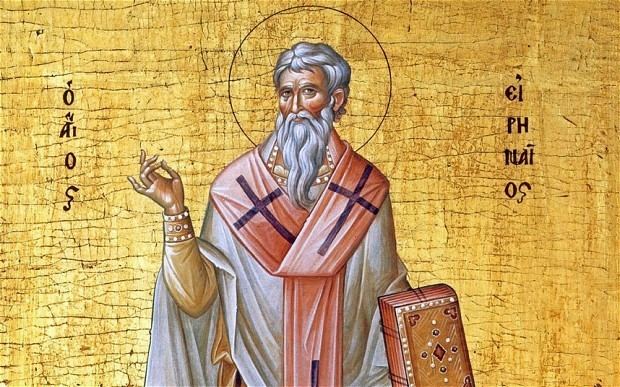
I mentioned versions of God. Hick contrasts three versions of God. The first is open theism. Open theism presents a God that is omniscient only about the past and the present and knows nothing about what people will do with free will. Open theism lets God set up the rules and the conditions that the future will be based on and knows the future in a general way, but doesn’t have the ability to predict the specifics about human choices. For the open theist, God’s omniscience is relative. This means that in setting up free-will, God may be taking a big risk. He might lose the gamble.
On the opposite extreme is Calvinism. The Calvinist’s God not only knows everything that will happen in the future but does everything that is good in it. There is no free-will other than God’s. Every good thing in the Universe is something God bestowed. There is nothing good in man. Everything, both good or bad, is predestined, from who gets saved and who doesn’t, to what choices each person will make and who is going to heaven and who is going to hell. Calvinism lends itself to the criticism that God should not have created people knowing that they would go to hell. The Calvinist’s response is that God knows what he’s doing and we are not wise enough to question him. It’s the divine sovereignty and inscrutability argument.
Somewhere in the middle is something not quite so well known called Molinism, named after Luis de Molina, a 16th Century Jesuit. Molinism has God foreknowing every detail of our future free-will and predicting the best possible outcome in both the creation and sustaining relationship he has with the world. Molina is credited with the theory of middle knowledge, an addition to foreknowledge. In Molinism, God didn’t predestine things. But he did accurately predict them as the cosmos was formed, and he also knew from the beginning how he would relate to the world and shape it and how he would respond spiritually in every moment.
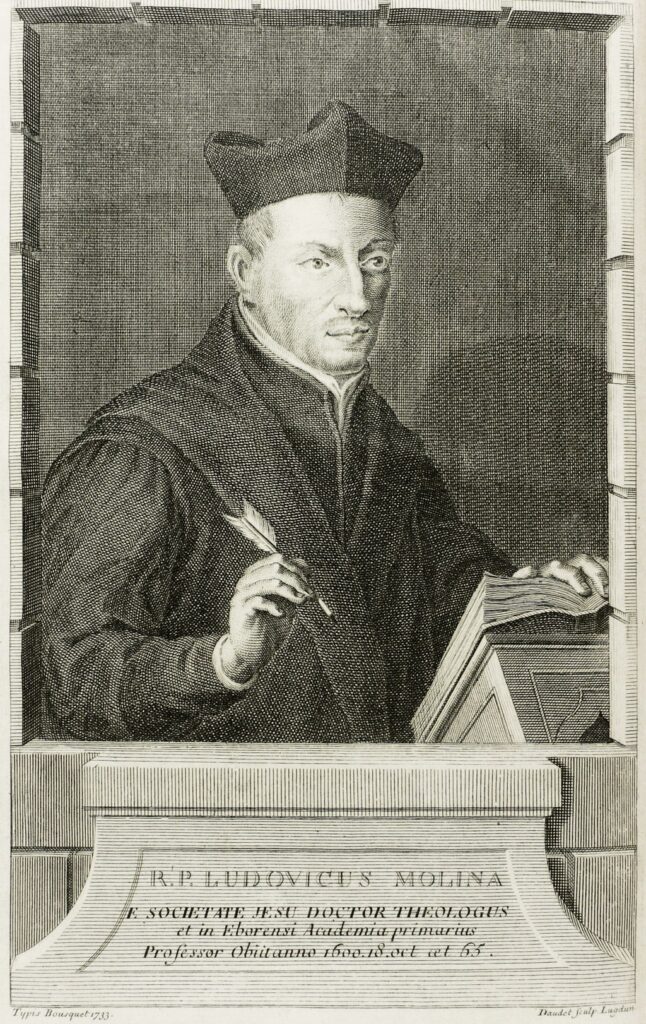
The Pamalogist, seeing time complete in divine Perfection, sides with the Molinist regarding divine knowledge, but views the future as something like a past event, since reality is extra-temporal. Do you remember me explaining the difference between intra-temporal Universes and extra-temporal ones? An intra-temporal Universe has a timeline that moves along from past to present to future. It’s inside the time sphere like a needle on a record groove. An extra-temporal Universe includes any temporal spheres it is associated with. It can access any point in time without first passing through time. It is like random access in a compact disc rather than a needle on the groove of an album. Time is subject to an extra-temporal Universe. An intra-temporal Universe is subject to time and changes with time.
If consciousness belongs to an extra-temporal Universe, then the past and the future are part of a single package. The final results for all points in time that it includes don’t change. It’s a done deal, like it’s all in the past.
The Calvinist might be interested to know that predestination is retained in Pamalogy since all things are in the past, being continually relived if they are good, from the divine perspective. But Pamalogy doesn’t forfeit free-will by accepting predestination. This is because free-will was something truly exercised in the past by a genuine moral agent accessing a temporal sphere.
It doesn’t matter whether a moral agent was a brain-state producing consciousness, or an extra-temporal consciousness accessing that point in time and space in that Universe as a moral agent converging with that brain-state. There is some form of moral agency operating in free-will. The two types of Universes converge in any good choice made so that consciousness puts on flesh in the knowledge of all that could be good or awesome. Even if the body and the brain in an intra-temporal Universe were to lack free-will through the deterministic causality of physics and chemistry, extra-temporal consciousness converging with it would remain a free moral agent, choosing to share that moment, lending its goodness to reality, as time and space are subjected to it.
That’s how Pamalogy salvages free-will and retains maximized awesomeness in heaven. Heaven is maximized awesomeness. It is the perfect reality, sharing in the divine Perfection.
But what about bad things? For Pamalogists, if bad things happen, these may happen on the hypothetical side of intra-temporal Universes, but the good moral agent, being holy in Perfection, has no reason to access any bad parts in intra-temporal Universes. Those exist entirely as hypothetical possibilities, not realities. They may be loaded into the consciousness of the convergent brain as memories, but it is the extra-temporal Universe that is real, lending its reality to the intra-temporal one in the form of the good things it shares. In Pamalogy, only that which is good in the intra-temporal Universe is real and its goodness isn’t from the intra-temporal Universe in the first place. It stems from Perfection itself, wherever it is shared, either in extra or intra-temporal Universes. The result is a wholly good reality, operating with free-will, choosing only that which is good.
One other response in my survey on Facebook on free-will in heaven was a quote from 1 Corinthians 15:44. Regarding the resurrection, “it is sown a natural body. It is raised a spiritual body.” Several answers suggested that without the natural body, the inclination to sin disappears. But what exactly is the difference between the natural and spiritual body? The Bible is unclear but it no doubt has to do with being born again from above, in which case, fully free from the passions of the natural body, the one who receives all good things from above, (as James said in chapter 1, verse 17), freely receives all good things at all times in the resurrection. By contrast, the one who clings to the passions of the natural body can be saved, but as Paul puts it in 1st Corinthians 3:15, as through fire, with much loss. These things … these works, or acts … these decisions … seem to be deleted. They don’t count as the treasures that get laid up in heaven. If this is something like a CD of works that can forever be accessed and relived through the free moral agency of the spiritual body in cooperation with the freely chosen goodness found in the Maximization of Awesomeness, then there seems to be a way to harmonize free-will and the incorruptibility we would expect to find in heaven.
So, bottom line .. how does a moral agent freely choose only that which is good. What kind of free choice is that? It is the kind that is worth reliving. In Pamalogy heaven, the reward that you get is a treasury of goodness worth reliving. The bad stuff wasn’t you. It was a hypothetical imaginary you. Furthermore, you’re already in heaven and always will be. What you are experiencing, if it seems like you are surrounded by evil, is the opportunity to relive some good choice you’ve made. There is something in your experience that is worth keeping forever.
And the reason I can say this is that if it would be good it is true, and this would be good. It would mean there is no such thing as evil and it would mean that you have eternal life. If Maximized Awesomeness is true, then this follows. If you would like to see proof that Maximized Awesomeness is true, take my free Pamalogy 101 course.
I’ll take this a step farther. In Pamalogy, the free moral agent is not just defined by consciousness, but by Perfection and grace. Perfection and grace retain all good choice as that which is worthy of extra-temporal convergence. Evil is not chosen despite free-will in heaven because only that which is good is retained as part of what constitutes the fullness of Awesomeness.
Next time, I want to take a look at what neuroscience says about free-will. Is free-will even a thing? If you found out it wasn’t, how would that effect your sense of moral responsibility? Eventually, we’ll pass all this through the truth machine. I think you’re going to find that the whole truth, and nothing but the truth is a very fine thing. Ciao!
URL for sharing this transcript page: https://pamalogy.com/2022/01/06/incorruptibility/
URL for sharing this podcast: https://player.captivate.fm/episode/80b0a58f-19e3-41cf-ab7f-511125a81e47
URL for sharing just the audio file: https://podcasts.captivate.fm/media/a92b4ac6-7014-40fc-941d-3d197b194817/episode10-incorruptibility.mp3
Previous: Connection
Up Next: Determinism

